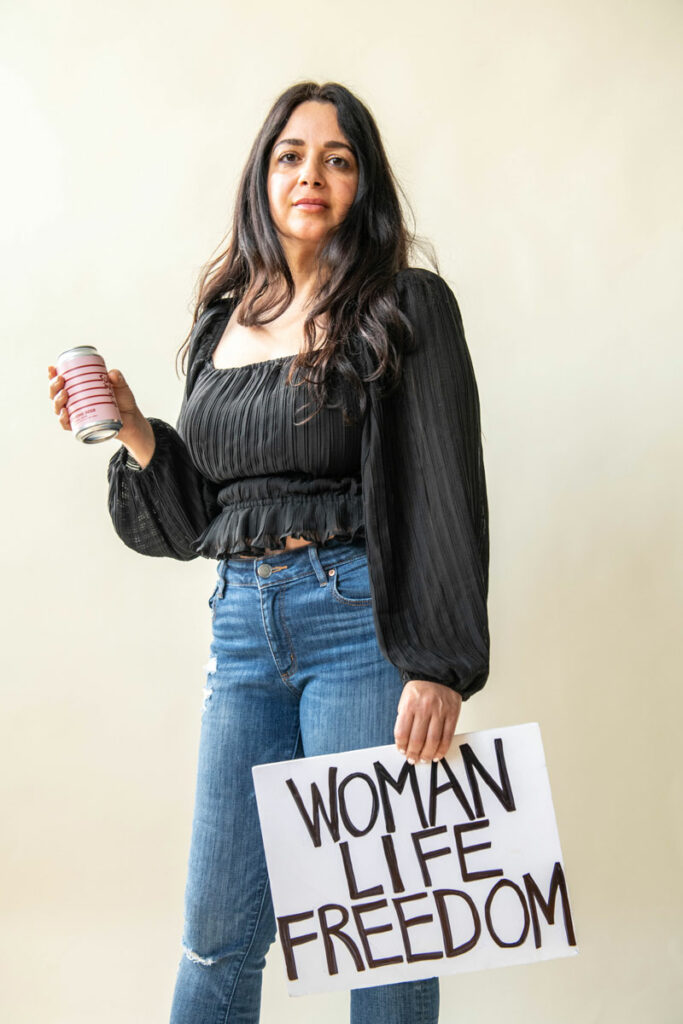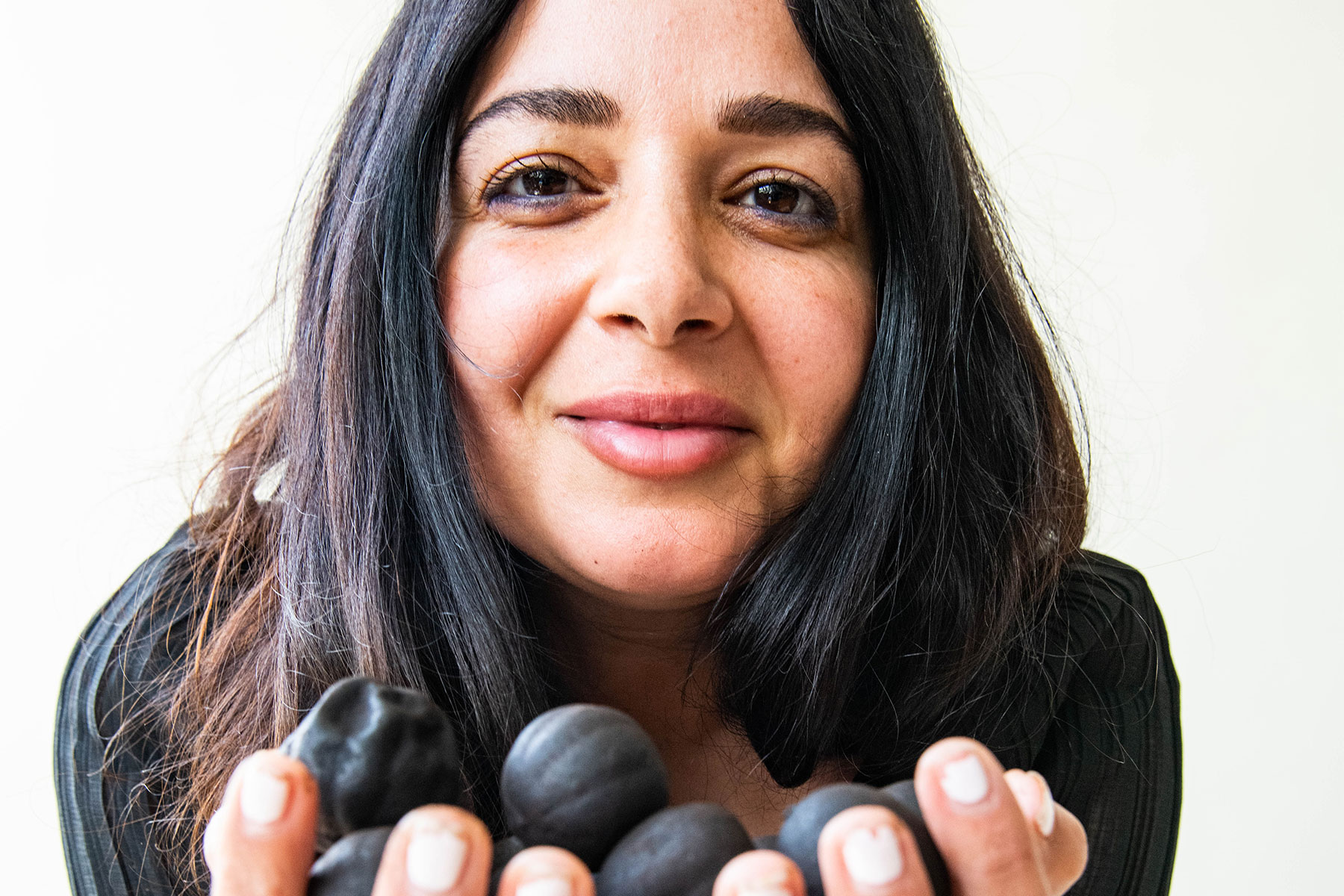BREWER + OWNER OF BACK HOME BEER
Lives In: Cobble Hill
Working Toward: Preserving Iran’s Pre-Revolution Brewing Culture
When you think of countries with strong brewing traditions, Iran might not be one that comes quickly to mind. Zahra Tabatabai, Cobble Hill resident and founder of Back Home Beer, is changing that.
“A couple of years ago, just a little bit before the pandemic, I was in Atlanta and my grandmother made this passing comment about how she misses my grandfather’s beer,” says Tabatabai. She’d grown up hearing stories about her grandfather making wine and beer in the basement of their home in Shiraz, which, before the 1979 Iranian Revolution, was known as the neighborhood spot for having a good time. Zahra, it turns out, inherited her grandfather’s gift for brewing. She began experimenting with his recipes, and, though her career up to this point had primarily been in sports journalism, it became obvious that her beer could have a life outside her family.
Back Home Beer is a small operation—Tabatabai brews out of Flagship Brewing on Staten Island, and she self-distributes around Manhattan, Brooklyn, and sometimes Washington, DC. Nevertheless, Back Home Beer is already making a mark on New York’s food and beverage scene; you’ll find cans of her Persian-Style Lager and Sumac Gose at heavy-hitters like Loring Place, Atoboy, Eyval, and abcV. She’s found a magic formula of sorts—brewing impeccably made, on-trend beers that feature distinctly Middle Eastern ingredients. The lager, for instance, includes a touch of Persian blue salt, a nod to her grandfather’s habit of adding a pinch of salt to his beer to enhance its flavors. In addition to the gose brewed with sumac, she also brews an IPA with orange blossom water, and—when we spoke—she was working on a wheat beer made with black lime. Her recipes are designed to pair with food, which is probably why restaurants have so enthusiastically embraced Back Home Beer.
“My IPAs are super easy drinking IPAs,” Tabatabai says. “And that’s really what I wanted: a beer that’s easy to drink. And then I just add something a little special to it. That’s kind of my philosophy, and I think it also works in cooking.”
Brewing is an industry that’s still largely dominated by white male brewers and owners. Tabatabai is aware that she’s one of a tiny handful of women, let alone women of color, to operate their own breweries. And even in New York, she sometimes finds herself educating business associates and customers who are confused about the very idea of an Iranian-style brewery.

“A lot of what I get is, ‘You’re making a Muslim beer? Why would you do that? Muslims don’t even drink,’” she says. “This is not a Muslim beer. This is just a beer with influences from the Middle East, where my family is from. This beer does not identify with any religion.”
Many Americans don’t realize that Iran hasn’t always been an Islamic state. Before 1979, Iran was home to its own brewing, winemaking, and distilling traditions that stretch back for millennia. Tabatabai notes a couple of examples: Tehran used to be known as a vodka destination, and it was also home to Argo Brewing for almost 50 pre-revolution years. (Argo Brewing was re-established in 2019 as a nonalcoholic craft brewery.)
“Beer has only been outlawed for 40 years in Iran,” Tabatabai says. “I’m honoring the thousands of years of history before that.”
But Back Home and Tabatabai have some strong links to contemporary Iran, too. The can art for Back Home’s first three releases were designed by an Iranian woman that Tabatabai connected with over Instagram. The artist stays under the radar, Tabatabai said, because of the potential consequences of working with an alcohol brand.
“People in Iran don’t necessarily have as much of a creative outlet as we do here. And they’re more restricted in what they can do. So for me, it was very important to be able to highlight any Iranian woman artists.”
And despite it being against the law, there are people secretly brewing beer in modern-day Iran—some of whom have reached out to Tabatabai to express their excitement over her work and, periodically, to ask for brewing advice.
“They’re literally risking jail time or fines—or even, for multiple offenses, death—doing what they’re doing,” she says.
Tabatabai is outspoken about her support for a free Iran. When the uprising began last September, Tabatabai co-founded the organization, Woman Life Freedom NYC, with some of the people she met at the protests in New York. Since then, their work has been a mix of organizing protests and doing behind-the-scenes work including contacting politicians to express support for the MAHSA act, the Mahsa Amini Human Rights and Security Accountability Act, a bipartisan act to increase sanctions against Iran.
“This is the first time in the last 45 years since the revolution that people are more hopeful. And revolution takes time. So this is not something that we can undo overnight. It’s going to probably take a couple years, but I do think that we’re headed in the right direction and that we will see a free Iran in my lifetime for sure.



